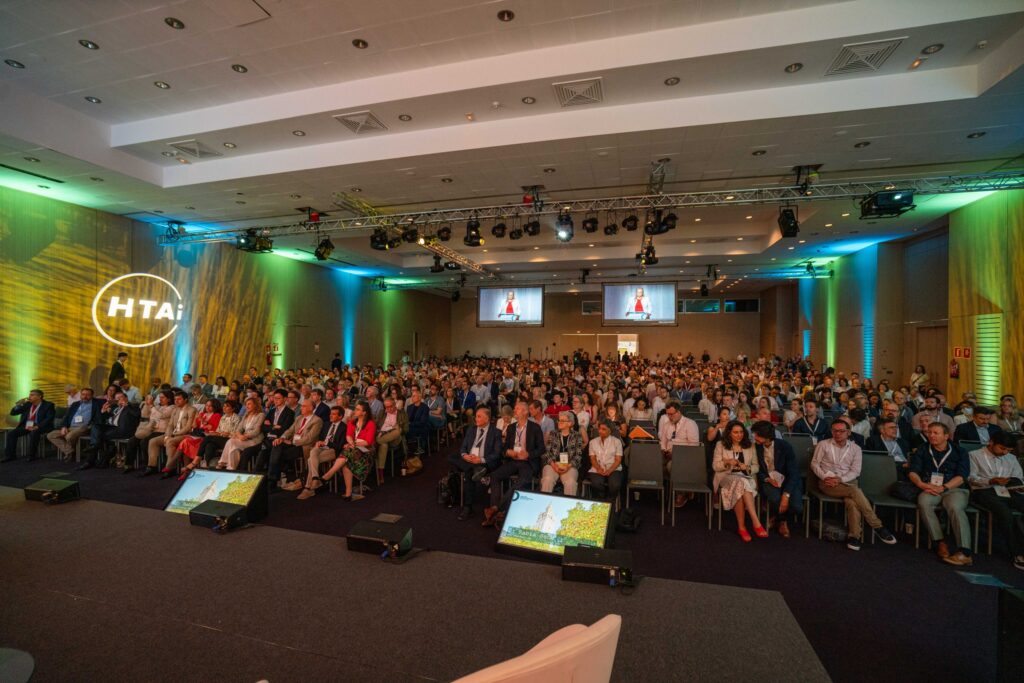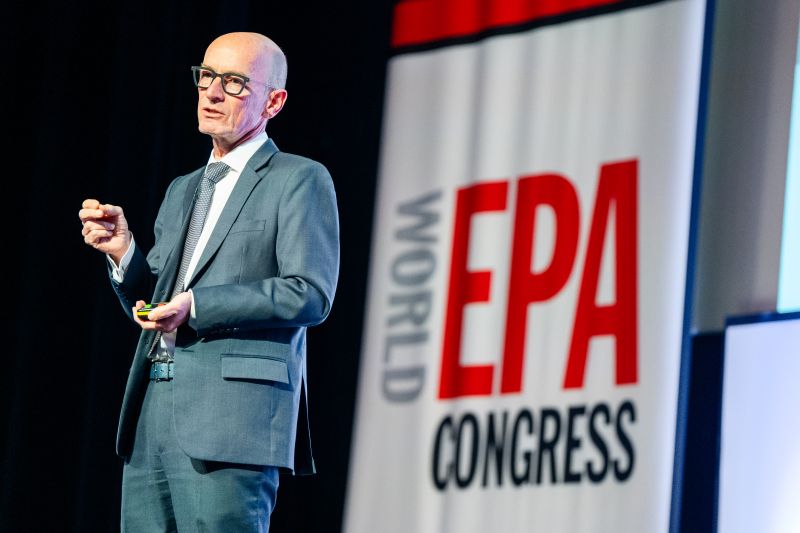'Access to healthcare innovation should be seen as an investment, not a cost': Christoph Glaetzer

In Latin America, healthcare innovation often takes a long time to arrive. While the region's health insurance systems are generally robust, several factors mean that the arrival of innovation can take longer than in other parts of the world. This is one of the topics being addressed at the HTAi 2025 Annual Meeting, held this year in Buenos Aires, where global experts are gathering to discuss how Health Technology Assessment (HTA) can adapt to the challenges of the future.

HTAi 2025 Annual Meeting, which this year is being held in Buenos Aires. Photo: HTAi
One of the key participants at the summit is Christoph Glaetzer, Chief Global Value & Access Officer at Johnson & Johnson Innovative Medicine, who leads global efforts to promote access to innovative treatments for complex diseases such as cancer, immunological disorders, cardiovascular disorders, and mental health. With more than 30 years of experience in the sector, Glaetzer has worked in Europe, the United States, and Asia developing strategies to effectively deliver scientific breakthroughs to patients.
In an interview with EL TIEMPO, Glaetzer reflects on the challenges and opportunities of access to healthcare innovation in Latin America—and particularly in Colombia—highlighting the need for public-private partnerships, more dynamic regulatory frameworks, and viewing healthcare as a strategic pillar for social and economic development.

Christoph Glaetzer, Chief Global Value & Access Officer at Johnson & Johnson. Photo: EPA Congress
The conference seeks to generate ongoing dialogue among various stakeholders in the healthcare system: HTA agencies, insurers, patient associations, and other key players. Although healthcare is a local issue in each country, there are common challenges, such as ensuring that innovations reach the populations that need them. The speed of scientific advancement is impressive, but it also requires systems to adapt quickly. For us, as a pharmaceutical company, it is essential to participate in these spaces and contribute our global experience.
How do you view the challenges of access to health technologies in Latin America, and specifically in Colombia? All countries seek to ensure access to health care, and that is encouraging. However, the capacities of their systems vary. In Latin America, coverage frameworks, financing, and infrastructure vary significantly. The important thing is that treatments adapt to this reality. We work closely with governments like Colombia's to improve access and support the evolution of the health system. It's not just about introducing an innovation, but ensuring it is sustainable and useful for the population.
Do you think the cost of innovations represents a barrier to their adoption in the region? It's a valid and relevant question in all contexts, not just in Latin America. Budgets are also limited in Europe and the United Kingdom. But it's key to change the narrative: we must not view health as an expense, but as an investment. If we treat diseases early, prevent illnesses, or avoid serious progression, we reduce social and economic burdens. Furthermore, a strong healthcare system boosts the economy by ensuring a healthy and productive workforce. This vision of holistic value is what we must foster.

Healthcare innovation can help reduce system operating costs. Photo: iStock
Our company is committed to leading wherever science leads us. We focus on areas such as oncology, immunology, and neuroscience, and our goal is to bring these innovations to all countries, including Colombia. We have been working in the country for decades, participating in clinical trials and collaborating with local scientific leaders. We want to make breakthroughs available to patients, no matter where they live.
How can we make access not only faster but also sustainable in the long term? That's the great challenge. We need to think about the present without losing sight of the future. The key is to identify the areas of greatest need early on—such as cancer, for example—and build useful evidence for decision-making. It's also crucial to improve the efficiency of systems: many new treatments can reduce costs if implemented well. Sometimes, the problem isn't the price of innovation, but inefficient processes. It's a continuous cycle in which we must balance current access with investments for tomorrow.
What should Latin America do to stop being a region with late access to innovation and become a leader in implementation? I believe it is essential to recognize the value that healthcare brings to society, not only from the patient's perspective, but also from the economic and productivity perspective. Colombia, for example, has a system with universal coverage and a clear patient focus. If these principles are maintained, and a favorable environment for innovation is created—including participation in global research—the country can not only benefit from advances but also contribute to them. The key is to foster strategic alliances and not disrupt what is already working, but rather improve it.
Environment and Health Journalist
eltiempo





